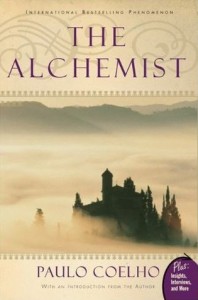A notion that haunts me is found in Neil Gaiman’s The Sandman: the library of the Dreaming, wherein can be found books that no earth-bound librarian can collect. Books that caught existence only in the dreams – or passing thoughts – of their authors. The Great American Novel. Every Great American Novel, by all of the frustrated middle managers, farmers, and factory workers who had their heart attack too soon. Every Great Nepalese Novel. The conclusion of the Wheel of Time, as written by Robert Jordan himself.
That library has a section containing every book whose physical embodiment was stolen. All of the poems of Sappho. Every Mayan and Olmec text – including the ones that, in the real world, did not survive the fires of the invaders.
Books can be like cockroaches. Text thought long-lost can turn up unexpectedly, sometimes just by virtue of having been left lying around until someone things to take a closer look. It is not an impossible hope that one day, another Mayan codex may make its reappearance, thumbing its nose at the colonizers and censors who despised it and the culture and people it came from.
Books are also fragile. Sometimes the censors do succeed in utterly destroying every last trace of a book. Always, entropy threatens all. Active measures against these threats are required; therefore, it is appropriate that librarians fight the suppression, banning, and challenges of books.
Banned Books Week is part of that fight, and is important that folks be aware of their freedom to read what they choose – and to be aware that it is a continual struggle to protect that freedom. Indeed, perhaps “Freedom to Read Week” better expresses the proper emphasis on preserving intellectual freedom.
But it’s not enough.
I am also haunted by the books that are not to be found in the Library of the Dreaming – because not even the shadow of their genesis crossed the mind of those who could have written them.
Because their authors were shot for having the wrong skin color.
Because their authors were cheated of an education.
Because their authors were sued into submission for daring to challenge the status quo. Even within the profession of librarianship.
Because their authors made the decision to not pursue a profession in the certain knowledge that the people who dominated it would challenge their every step.
Because their authors were convinced that nobody would care to listen to them.
Librarianship as a profession must consider and protect both sides of intellectual freedom. Not just consumption – the freedom to read and explore – but also the freedom to write and speak.
The best way to ban a book is to ensure that it never gets written. Justice demands that we struggle against those who would not just ban books, but destroy the will of those who would write them.

